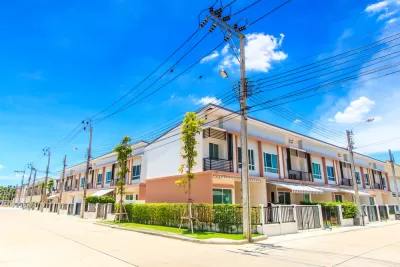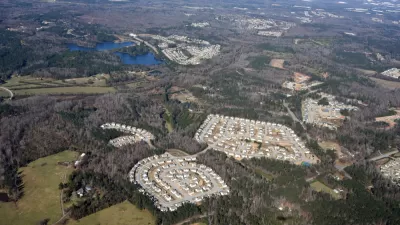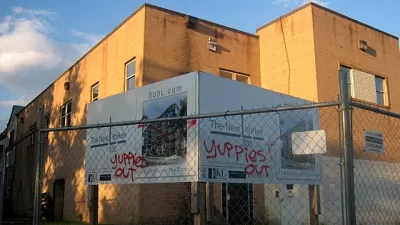Is the challenge of retrofitting sprawl intractable or unavoidable?

Robert Steuteville picks up on a debate from the CNU conference earlier this year about whether "whether sprawl repair is worth the trouble." Steuteville notes first that the debate was surprising, given that "Retrofitting Suburbia was one of top books in the planning field in the last decade" and co-author Ellen Dunham-Jones "has accumulated a database of more than 1,200 suburban retrofit projects under construction or in planning."
Architect Kevin Klinkenberg and development expert Lee Sobel, however, dared to argue that sprawl repair is "a fool's errand." Klinkenberg even penned a blog post in May making this provocative argument: "Suburbia, or sprawl as we interchangeably call it, is all about bigness and mass production," meaning, "it's outside the DNA of walkable cities. Embracing sprawl retrofit is like saying we can transform fast food culture into healthy food."
Steuteville, however, rejects that premise, and proceeds to take on theanti-suburban retrofit arguments, one by one. Those arguments include:
- "Even when suburban retrofit projects are built, the urbanism is far from great." Steuteville's response is that "turning a lousy place into a decent one improves people's lives."
- "Existing urban places are plentiful, so just work in those areas." Actually, argues Steuteville, the supply of urban areas with 19th century and early 20th century street grids is extremely finite, meaning it will never meet demand. "Values will relentlessly increase unless we transform some of the drivable suburban areas."
A final point is that much of what Klinkenberg abhors about sprawl, especially its "bigness," can also be found in cities. So, says Steuteville: "We can't avoid the task of sprawl repair—not even in cities."
FULL STORY: Sprawl repair is essential, unavoidable

Maui's Vacation Rental Debate Turns Ugly
Verbal attacks, misinformation campaigns and fistfights plague a high-stakes debate to convert thousands of vacation rentals into long-term housing.

Planetizen Federal Action Tracker
A weekly monitor of how Trump’s orders and actions are impacting planners and planning in America.

In Urban Planning, AI Prompting Could be the New Design Thinking
Creativity has long been key to great urban design. What if we see AI as our new creative partner?

King County Supportive Housing Program Offers Hope for Unhoused Residents
The county is taking a ‘Housing First’ approach that prioritizes getting people into housing, then offering wraparound supportive services.

Researchers Use AI to Get Clearer Picture of US Housing
Analysts are using artificial intelligence to supercharge their research by allowing them to comb through data faster. Though these AI tools can be error prone, they save time and housing researchers are optimistic about the future.

Making Shared Micromobility More Inclusive
Cities and shared mobility system operators can do more to include people with disabilities in planning and operations, per a new report.
Urban Design for Planners 1: Software Tools
This six-course series explores essential urban design concepts using open source software and equips planners with the tools they need to participate fully in the urban design process.
Planning for Universal Design
Learn the tools for implementing Universal Design in planning regulations.
planning NEXT
Appalachian Highlands Housing Partners
Mpact (founded as Rail~Volution)
City of Camden Redevelopment Agency
City of Astoria
City of Portland
City of Laramie





























